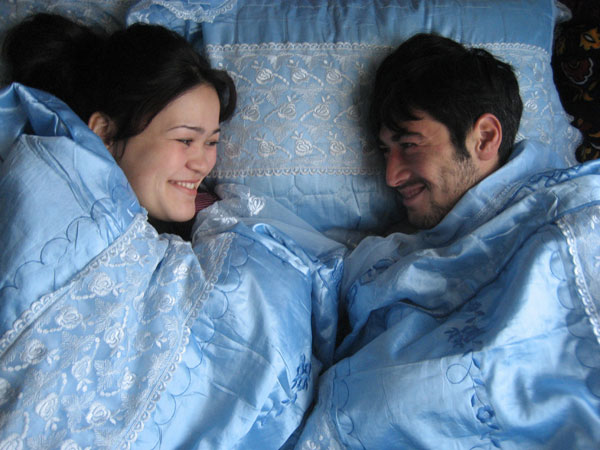“Container” Approach Is Emerging Trend in Documentary Filmmaking
I was fascinated by recent article in The Independent about the making of a documentary that recently premiered at Silverdocs, Long Distance Love. Directed by two Swedish filmmakers, the film is about a young Muslim couple and their quest to find work in Moscow. What’s interesting about this film is the directors’ approach to creating situations in which the subjects talk openly about what they’re going through.
Although the film contains many vérité moments, it gets its emotional juice from the directors controlled staging of critical conversations. “As the filmmakers maintained more control, creating very specific circumstances for the subjects to respond to, the people seemed to reveal a depth of emotion that felt very different than in cinéma vérité,” according to The Independent.
Could it be that the cinema vérité approach, so prevalent (particularly) in our American social issue documentaries, will be nudged aside by a more “directorial” approach? If the contrived approach, which reportedly is being used by a few European filmmakers, actually succeeds in eliciting more emotional honesty and depth, then I would not be surprised if more American filmmakers lose their disdain for “directing” subjects and consider creating a “container” for these kinds of emotional interactions to emerge on film.
In fact, many American filmmakers, particularly those making personal documentaries, have used the “contrived” narrative arc to give their documentary direction and suspense. The directors of Supersize Me, No Impact Man, and King Corn have already evolved this contrived quest method into a highly engaging documentary subgenre.
One appeal of this tactic, of course, is that the filmmaker does not have to spend years following subjects for a longitudinal documentary that may not pay off in a climax scene. Directors can, in a sense, stage an emotional encounter that could become a climax scene. This is not to say that directors who use the anti-vérité approach have it easy or eschew journalistic standards. Reportedly, directors Magnus Gertten and Elin Jonsson interviewed 60 couples before casting the subjects for their documentary.
You can read more about Long-Distance Love, and how the directors created situations that elicited juicy emotional moments at http://www.independent-magazine.org/magazine/2010/03/doc_funds_and_form.
And to learn more about creating a compelling narrative arc for character driven documentaries, go to https://newdocediting.com/land/editingdocumentaryecourse/.
